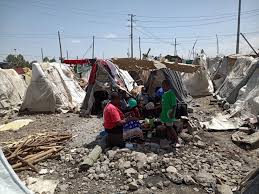
Introduction
Nairobi, the capital city of Kenya, stands as a vibrant economic and cultural hub in East Africa. It is a city rich in history and influences, showcasing a blend of modernity and tradition. Recently, Nairobi’s significance has surged, attracting international businesses, tourists, and expatriates seeking opportunities in various sectors, including technology, finance, and tourism. Understanding Nairobi’s current trajectory is essential for grasping the broader economic and social dynamics in East Africa.
The Economic Landscape
In 2023, Nairobi has emerged as one of the fastest-growing cities on the continent, with its economy expected to grow by 5.5% according to the World Bank. The city serves as the regional headquarters for numerous multinational corporations, including Google and Coca-Cola, which have established operations in Nairobi to tap into the African market. The technology sector in Nairobi, often dubbed “Silicon Savannah,” has gained acclaim thanks to vibrant startups and innovation hubs that are fostering a digital revolution in the region.
Infrastructure Developments
Major infrastructure projects are underway, aimed at supporting this growth. The Nairobi Expressway, a toll road that aims to ease traffic congestion, was officially opened in mid-2022 and has drastically reduced travel time across the city. Furthermore, the ongoing expansion of the Nairobi Commuter Rail and the upgrade of Jomo Kenyatta International Airport are foundations for enhancing connectivity and accessibility, key factors that contribute to the city’s robust economic climate.
Cultural Significance
Nairobi is not just a business center; it is also a cultural epicenter. The city is home to a diverse population and offers rich cultural experiences ranging from the Nairobi National Park, which is the only national park within a major city, to the bustling markets and local cuisine. The annual Nairobi Festival showcases local arts and cultural heritage, promoting the city as a destination for both local and international tourists.
Conclusion
Nairobi’s continued growth as a global city is promising for East Africa’s future. As economic opportunities increase, so too will the challenges of urbanization, such as infrastructure strain and housing. However, the city’s adaptive spirit and innovative solutions provide a hopeful outlook. For investors, businesses, and travelers, Nairobi represents a city poised to become a key player on the world stage, making it essential to keep a close watch on its evolving landscape.



